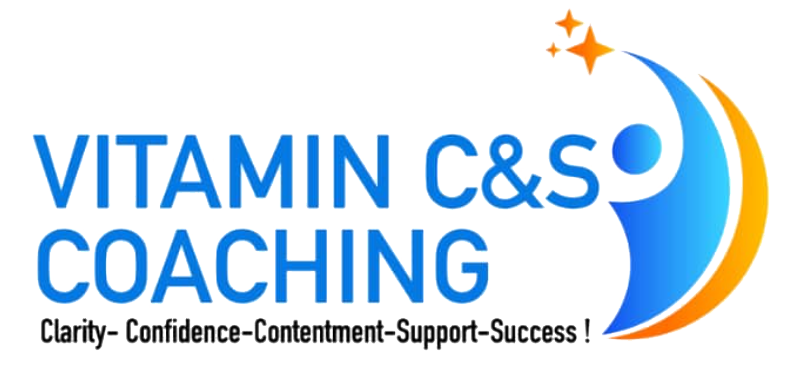The coach provides objective assessment, listens attentively, and facilitates thoughtful decision-making while encouraging personal growth and challenge. They challenge blind spots, promote fresh perspectives, and maintain professional ethics.
On the other hand, the individual creates the coaching agenda, uses self-awareness to envision success, and takes full responsibility for decisions and actions. They engage in big-picture thinking, use problem-solving skills, and work with the tools provided to take effective steps forward.
An individual or team might choose to work with a coach for many reasons, including but not limited to the following:
• Something urgent, compelling or exciting is at stake (a challenge, stretch goal or opportunity)
• A gap exists in knowledge, skills, confidence or resources
• A desire to accelerate results
• A lack of clarity with choices to be made
• Success has started to become problematic
• Work and life are out of balance, creating unwanted consequences
• Core strengths need to be identified, along with how best to leverage them
Hiring a coach is not a sign of weakness, but rather a sign of strength and commitment to personal and professional growth. The best clients are those who recognize their potential for improvement and seek out the guidance and support of a coach to help them achieve their goals. Even the most successful individuals, like some of our coaches, work with a team of coaches to continuously improve their performance. By hiring a coach, you demonstrate a willingness to invest in yourself and take proactive steps towards achieving your goals
No, coaching is not just for people with problems. Coaching is useful for anyone who wants to achieve their personal or professional goals and maximize their potential.
Coaching works by creating a safe and supportive environment that encourages self-reflection, raises self-awareness, and promotes personal growth and development.
Coachees can expect to gain clarity about their goals, develop a plan of action, and receive support and accountability throughout the coaching process.
One of the greatest challenges facing coaching is the fact that the results are variable and not guaranteed. The good news is, however, that the results often far exceed the original mandate and expectations. Here are a few criteria that will set any coaching engagement up for success:
• Does the client agree that there is a “gap” between their current state and their desired state?
• Does the client agree that they are responsible for taking action to close the gap?
• Is there an understanding that sustainable change does not take place overnight? Is there a long-term commitment to the coaching process in support of change?
• In cases of executive coaching being introduced to an organization, is there an executive sponsor or champion for the process?
• Is there agreement that the content of coaching sessions remains absolutely confidential between the coach and the client?
Yes, coaching is confidential. Coaches are bound by ethical principles that require them to maintain confidentiality and respect their clients' privacy
Coaching engagements can vary in length depending on the coachee's goals and needs. Some engagements may last a few months, while others may last several years
The frequency of coaching sessions varies depending on the coachee's needs and goals. Coachees may have daily, weekly, or monthly sessions with their coach.
Coaching sessions typically last between 45 minutes to an hour, depending on the coach and coachee's preferences.
The number of coaching sessions will depend on the coachee's goals and needs. Some coachees may only need a few sessions, while others may benefit from ongoing coaching over a longer period of time.
You will know that coaching is working for you when you start seeing progress towards your goals and experiencing positive changes in your life. It is important to communicate regularly with your coach to ensure that you are getting what you need from the coaching process.
Measurement may be thought of in two distinct ways: external indicators of performance and internal indicators of success. Ideally, both are incorporated.
Examples of external measures include achievement of coaching goals established at the outset of the coaching relationship, increased income/revenue, obtaining a promotion, performance feedback that is obtained from a sample of the individual’s constituents (e.g., direct reports, colleagues, customers, boss, the manager him/herself), personal and/or business performance data (e.g., productivity, efficiency measures). The external measures selected should be things the individual is already measuring and has some ability to directly influence.
Examples of internal measures include self-scoring/self-validating assessments that can be administered initially and at regular intervals in the coaching process, changes in the individual’s self-awareness and awareness of others, shifts in thinking that create more effective actions, and shifts in one’s emotional state that inspire confidence.
You can measure the ROI of coaching by tracking your progress towards your goals and assessing the impact of coaching on your work performance, career growth, and personal fulfillment
The cost of coaching varies depending on the coach's experience, expertise, and geographic location. Some coaches charge by the hour, while others charge a flat fee for a coaching package
If you don't like your coach, it is important to communicate your concerns and explore whether there is a way to address them. If you are not able to resolve your issues with the coach, you may need to consider finding a new coach who better meets your needs.
Yes, coaching can help you identify and overcome limiting beliefs or self-doubt by providing a supportive and empowering environment for personal growth and development.
Coaching and therapy have some similarities, but there are key differences. Coaching focuses on helping individuals achieve their goals and maximize their potential, while therapy focuses on resolving emotional and mental health issues.
Coaching focuses on achieving specific goals; Mentoring provides guidance on personal or professional development; Consulting provides specialized expertise or advice; Counseling helps address underlying psychological or emotional issues.
A coach can help you clarify your goals by asking thought-provoking questions, exploring your values and passions, and helping you create a plan of action.
It can be helpful to prepare for coaching sessions by reflecting on your progress towards your goals, identifying any challenges or obstacles you are facing, and thinking about any questions or topics you want to discuss with your coach.
The time commitment for coaching varies depending on the coachee's needs and goals, but typically involves regular sessions with a coach and some time for reflection, planning, and action outside
To determine whether you or your company could benefit from coaching, start by summarizing what you would expect to accomplish in coaching. When an individual or business has a fairly clear idea of the desired outcome, a coaching partnership can be a useful tool for developing a strategy for how to achieve that outcome with greater ease.
Since coaching is a partnership, ask yourself whether collaboration, other viewpoints, and new perspectives are valued. Also, ask yourself whether you or your business is ready to devote the time and the energy to making real changes. If the answer is yes, then coaching may be a beneficial way to grow and develop.
The following list gives you tips on how to maximize your coaching experience:
• Organize your thoughts before each call.
• Be prepared to do the actions on which you and your coach agree.
• Be fully honest. Secrets will hold you back. Your coach is not your judge and will not judge you. S/he can coach you better if he knows what’s on your mind.
• If you don’t like something that is happening in your calls, say so. If you say what is bothering you, your coach will probably be able to fix it.
• Recognize that progress comes one step at a time and be prepared to work on isolating the next steps to be taken. The big picture is a useful guide, but it is not useful if it remains just a picture. To best use your coach, be prepared to take action so that your dreams can become reality.
• Listen to what your coach says. Try to hear it without preconceptions and without overlaying it with the thought patterns that have held you back in the past.
• Remember that a coach is not a therapist. If you need a therapist, then find one, or ask your coach for help in doing so.
• Understand that as your coach works with you on your outer goals, you may need to make inner changes. The one is unlikely to occur without the other.
• Be open to success and to wonderful changes in your life. Expect them. Require them. They will come.
• You are responsible for yourself. No one – not even your coach can “fix you”. Through curiosity, exploration and learning you will find your way.
contact us and we will reply to ASAP.

















